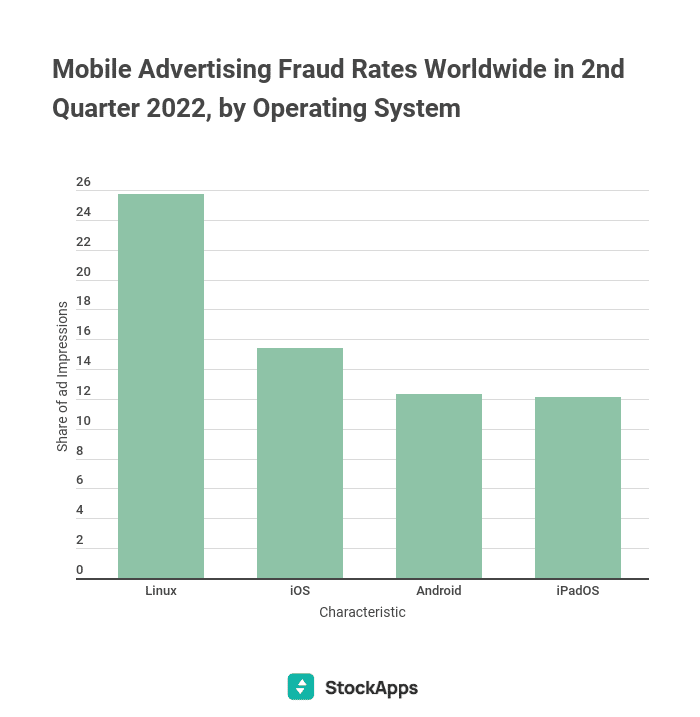
Mobile Ad Fraud passes as one of the best-organized crimes of recent times. It is a crime that happens in the digital world and closely competes with narcotics. A current report by StockApps.com indicates that iPhones recorded more Ad-related frauds than Android phones in Q2’22 at 15.4%. Android’s Ad-related frauds stood at 12.3%.
Speaking on the findings, StockApps specialist Edith Reads said. “This is not very surprising. Iphones are generally more expensive than Androids. They, therefore, tend to attract more criminals who want to make a quick buck.”
Reads said, “Ad fraudsters use sophisticated methods to dupe advertisers. They create fake traffic using bots and click farms. They also use hijacked devices to generate false impressions. These techniques are more prevalent on iOS devices because they are more valuable.”
All mobile operating systems are facing Ad fraud. Yet, the Linux operating system is the worst hit at 25.7%. While iPadOS is the least hit at 12.1%.
Different Types of Ad Frauds
There are relatively few variations between iOS and Android. Therefore, the tech and tactics used to steal funds through mobile Ads illegally vary from one app store to another.
One of the most popular frauds involving advertisements on Android is “click injection.” Click injection is not available on iOS, which significantly differs from Android.
Fraudsters use Click spamming to send out several phony reports in the hopes that one will be trusted. The purpose of click spamming is similar to that of a denial-of-service attack. It aims to overwhelm any anti-fraud measures completely.
Ad staking is another fraudulent operation where many Ads appear simultaneously on the screen. This leaves the door open for a shady publisher or another partner to claim compensation for delivering an Ad even if the user never saw it. That is why some people call it “ad hiding” as well. Brand awareness programs are particularly vulnerable to this form of fraud.

iOS vs. Android
iOS might be less susceptible to hacking than Android, but still not impenetrable. iOS users have a higher Customer Lifetime Value (LTV) than Android users since they spend more money on apps. That is why scammers focus on iOS devices; they are easier to exploit.
An iOS device cannot install unverified Apple software unless the user first takes the extra step of jailbreaking the device. Apple’s Program Store apps must pass rigorous testing before being available to users. Therefore, it is highly unlikely that any rogue app found there will engage in ad fraud.

Question & Answers (0)